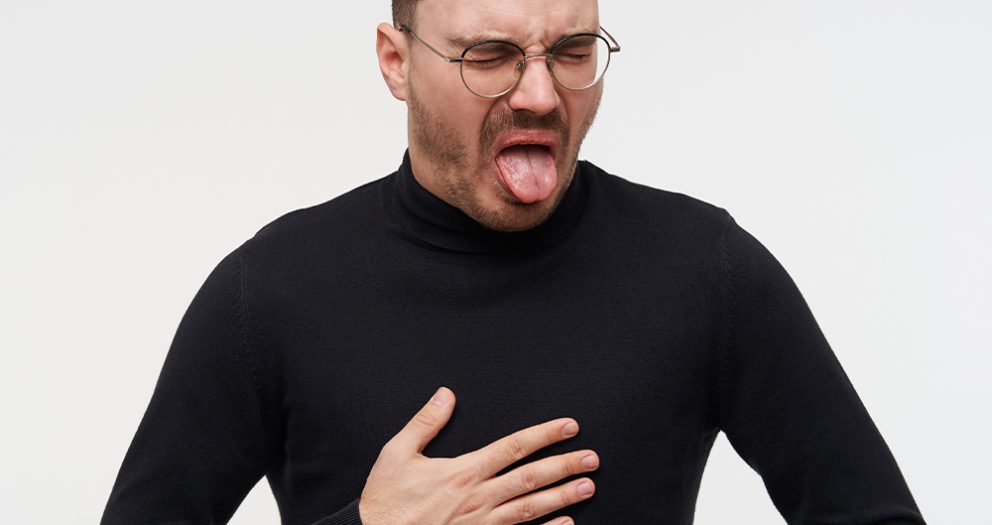Diagnosis is the most common starting point performed by doctors to determine the medical health of a person and it usually consists of a variety of preliminary tests to identify an underlying cause of a specific condition. Unfortunately there’s no standard test that can be used to definitely diagnose IBS so your doctor has to begin from the very start that involves a medical history, physical exam and tests so that other conditions can be ruled out.
Preliminary treatment procedures
Once your doctor has eliminated all other conditions and identified the main underlying condition that’s causing you irritable bowel syndrome, your doctor will use one of these diagnostic criteria:
- Rome criteria – These involve abdominal pain and discomfort that lasts for at least one day weekly over the last three months. They are usually associated with pain and discomfort during defecation and the frequency of defecation is changed or consistency of defecation is altered.
- Types of IBS – IBS is divided into three man types made up of
- constipation-predominant
- diarrhea-predominant
- mixed
Your doctor’s focus may also include an assessment of whether you may have more signs or symptoms that might betray the existence of another more serious underlying condition. These signs and symptoms can include:
- start of signs and symptoms beyond age 50
- weight loss
- rectal bleeding
- fever
- nausea or recurring of vomiting
- nightly abdominal pain not related to bowel movement
- persistent diarrhea that awakens you at night
- anemia caused mainly from low iron in your body
If these signs and symptoms are found in your tract system and the initial treatment hasn’t worked, additional tests may need to be carried out on you.
More tests
In order to further test the signs and symptoms your doctor can include:
- stool studies in order to determine the level of infection or issues for the ability of your intestines to extract nutrients from ingested food (malabsorption)
- other tests to eliminate other symptomatic causes
Diagnostic procedures
These usually include:
- colonoscopy – this involves the use of a small, flexible tube by your doctor for examining the entire length of the colon.
- X-ray or CT scan – images of your abdomen and pelvis are provided for viewing to allow your doctor to eliminate other symptomatic causes especially if you suffer from abdominal pain. Your doctor may fill your large intestine with barium liquid to enhance the visibility of your issues on X-ray or CT scan.
- Upper endoscopy – this involves the insertion of a long, flexible tube down the throat into the esophagus with a camera attached to the end. It allows the doctor to navigate and inspect the upper part of the digestive tract and take a sample of tissue (biopsy) and fluid from your small intestine to ascertain the extent of bacterial growth.
Laboratory tests connected with diagnostic procedure are:
- Lactose tests – the enzyme lactase digests sugar in dairy products but if your system doesn’t produce lactose then problems akin to those caused by IBS such as abdominal pain, gas and diarrhea will result. A breadth test may be called by your doctor or direct you to abstain from milk products especially milk.
- Breath test – this test can determine whether or not you have bacterial overgrowth in your small intestine. This usually affects people who’ve had bowel surgery, have diabetes or other diseases than slows digestion.
- Stool tests – stools may be tested for bacteria and parasites or for bile acid which is usually present during chronic diarrhea.
Treatments for Irritable Bowel Syndrome
Relieving the pain that usually accompanies IBS is the main focus of the given treatment, the goal being that despite IBS, you will be able to live a normal life.
It’s usually not difficult to control mild signs and symptoms so long as you are able to manage stress which is usually the underlying condition that triggers IBS.
In managing stress, you should try to:
- Get sufficient sleep
- Do regular exercising
- Drink lots of fluid
- Avoid foods that activate your symptoms
- Consume plenty of fibrous foods
In order to help in your dietary habits for controlling IBS, your doctor may suggest that you abstain from:
- Gas producing foods – these food types usually produce bloating from gas accumulation in your system. If you suffer from this condition you should avoid carbonated and alcoholic beverages and foods that may increase the presence of gas.
- Gluten – past research has shown that some people who suffer from IBS reported a big improvement in their symptoms of diarrhea when they stopped enjoying gluten foods such as wheat, barley and rye.
- FODMAPs – these are foods that contain carbohydrates such as lactose, fructans and fructose and others that include fermentable carbohydrates such oligosaccharides, disaccharides, monosaccharides and polyols, are notable present in grains, fruits, vegetables and dairy products.
If you wish to change your diet, you are advised to approach a dietitian to help you change your dietary habits.
It may also be likely for your doctor to recommend the use of counseling if your IBS issues are moderate to severe especially if stress and depression might set in and exacerbate your symptoms.
In addition to these dietary alterations, you doctor may suggest that you take the following medications:
- Laxatives – if consuming fiber fails to ease constipation, you doctor is likely to recommend OTC laxatives such as oral magnesium hydroxide or polyethylene glycol (Miralax)
- Fiber supplements – constipation may be eased if a supplement such as psyllium is taken with fluids.
- Pain medications – these include taking gabapentin or Pregabalin medications to ease severe pain or bloating.
- SSRI antidepressants – these selective serotonin reuptake inhibitor antidepressant treatments are effective for easing pain, depression, and constipation.
- Tricyclic antidepressants – this medication helps to relieve depression and can also interfere with the activities of neurons inside the intestines to reduce pain. If only diarrhea and abdominal pain are present without depression, you doctor may recommend a lower dose of imipramine (Tofranil), desipramine (Norpramin), or nortiptyline (Pamelor).
- Anticholinergic medications – included in this group is dicyclomine (Bentyl) which helps relive painful bowel spasms. They are usually prescribed for patients suffering from bouts of diarrhea. Essentially, they are safe medications to use but are known to cause constipation, blurred vision and dry mouth.
- Anti-diarrheal medications – these are OTC medications that can help to control your diarrhea, or a bile acid binder such as cholestyramine (Prevalite), colesgtipol (Colestid) or colesevelam (Welchol). You should note though that bile acid binders can also cause bloating.
Conclusion
The intestinal tract is a truly an awesome piece of creative marvel that serves the body well by allowing food to flow smoothly through its entire length and exit as waste material. Another function the intestine possesses is the ability of the intestines to absorb nutrients from the food and drink ingested which is subsequently converted to carbohydrates and energy. This is why IBS poses a threat but there are plenty of medications to treat it.






